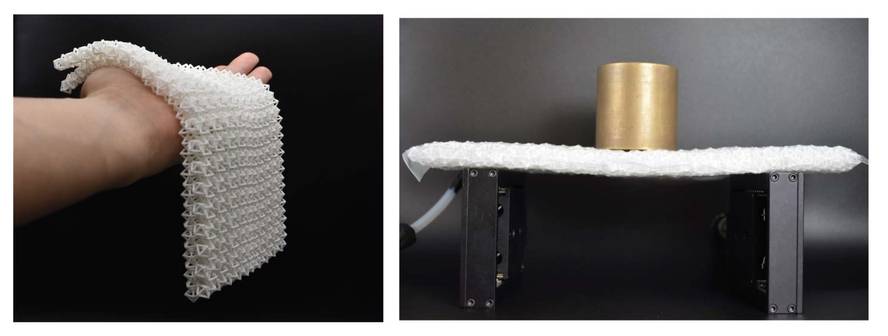They develop pressure-hardened tissue.
Through pressure they have developed a fabric that goes from being flexible to being hard and rigid, and vice versa. To obtain this fabric, the fibers have been replaced by polymeric elements composed of interconnected 3D printers. In its original state, the fabric is flexible, as is the conventional fabric. When compressed, however, the opilemeric elements come together and tie and the fabric becomes 25 times more rigid. With this structure it can bear loads over 30 times its weight.
The study has been published in the journal Nature and the authors have anticipated that this new tissue may be appropriate for exoskeletons and protectors.






